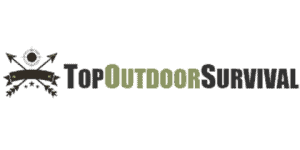Prepping is a concept that many people are exploring, even if they do not consider themselves to be preppers. If nothing else, the recent condition of our world has shown us that none of us are as prepared for a disaster as we think we are. There is always room for improvement. As a prepper, there are a few things that I wish someone told me before we started prepping to avoid some misconceptions and to be better prepared.
9 prepper tips I wish I’d heard before I started prepping.
- You don’t have enough water.
- Store water purification methods.
- Test recipes with your stored food.
- Learn new skills.
- Prep for your pets.
- Test everything.
- Think about trash disposal.
- Rotate stocks.
- Don’t try to remember everything.
Prepping is a complicated activity that requires planning for as many eventualities as possible. Starting out as a prepper can be a little overwhelming, and sometimes you miss simple, yet obvious things that can make a big difference to your prepping plans and strategy.
1. You Don’t Have Enough Water
Have you ever actually paused and considered how much water your household actually uses on a daily basis? Let me tell you, it is more than you think! When you consider a water strategy for your family, stockpiling is not enough.
You need a strategy that will give you a long-term solution for your water needs. Work on a water harvesting system so that you can have a plan for when your water stockpile runs out.
2. Store Water Purification Methods
Store water purification methods so that you can have an interim measure to make water drinkable when your water stores run out and you don’t have access to your harvested water.
Water purification tablets or water filtration devices that can clean a large amount of water are useful to store as a long term backup for your short term water stockpile.
3. Test Recipes With Your Stored Food
When your start your prepping journey and find out all the type of food that you should be storing and the ones that have the longest shelf-life, that’s all fine and dandy! But do you really know how to cook a tasty meal with those ingredients?
Remember that when the time comes to start using your stock of food, you are going to be eating the foods in your storeroom for some time. Your family will quickly become disgruntled if they have to eat the same boring food, day after day.
While you have the opportunity, try out new recipes using ingredients from the type of foods that you are stockpiling as part of your prepping. Food is a comfort thing, and when times are tough, it will help to keep morale high and give your family a boost if they can have a tasty, hearty meal!
4. Learn New Skills
Prepping is not only about stockpiling resources for your family to make sure you have enough for your needs when they are no longer available in the outside world.
You also need to learn new skills so that you can be self-sufficient not only with your food and water resources. You need to learn new skills so that you can do repair and maintenance tasks and other services that you normally rely on others to perform.
Sit down and think about services that you currently outsource to professionals, and that would be an essential service and may no longer be available if society breaks down.
These could include things such as the following.
- Medical care. Medical services will not be available should the event you are prepping against occur. At the very least, you should take a first aid course so that you can handle basic wound care. But consider taking this training further and getting advanced training in this field.
- Learn about natural medicines. Medicine supplies will dry up, and your stocks will only last a finite amount of time. Investigate natural remedies for common ailments and get skilled up in this area.
- Vehicle maintenance and repair. Do you know the basics of how engines run and what to check when they stop working? Research this information and start by doing basic maintenance on your vehicles, generators, and other engines now so that you have the skills available when you really need them!
- Growing your own food. Stockpile seeds and learn how to grow your own food in a vegetable garden. Growing your own food will help you extend the amount of time that your food stockpile will last and help you to survive when it runs out.
- Basic maintenance skills. Learn how to weld, do woodwork, and get a basic understanding of electrical systems and plumbing systems. These professionals will not be available in a SHTF scenario.
5. Remember To Prep For Your Pets
You are stockpiling food for you and your family and have ticked everything off the checklist, and you are now ready for anything! But wait, did you think about your pets and how you are going to be able to take care of them when you can no longer buy food for them from the store?
You need to figure out how you are going to keep them fed and healthy when these responsibilities all fall on your shoulders. Dogs can be an asset to the family by providing an early warning system for approaching danger, defense, and even companionship.
Think bout how you are going to feed your animals when you need to start using your stockpiles and include long-life food for your pets in your stores. Figure out what alternative, homemade foods you can feed your pets when the time comes.
6. Test Everything
Storing equipment and gear for use in an emergency situation is only to your advantage if everything works when you need it to.
Include in your regular checks or stock inspection routines to test all your essential gear to confirm it is in working order, and if it is not, repair or replace it. Items such as flashlights, gas stoves, firearms, generators, water pumps, and the list goes on, all of which need to be tested regularly.
Set up a schedule to test gear that you have stored and stick to the rotational checking to make sure everything is operational.
7. Think About Trash Disposal
We generate a large amount of trash as humans, and we need to consider how we are going to deal with our garbage in a SHTF situation. Garbage can attract vermin with the associated disease; it can also attract unwanted attention from people who notice that there is fresh garbage around, and they may be tempted to raid your stores.
Disposing of your garbage in a manner that is discreet will enhance your safety and protect your health, so it should factor into your planning.
8. Rotate Your Prep Stocks
Many of the products that you place in storage will have a shelf-life or an expiry date. You should plan to rotate your stocks and start you use the older stock in your normal life and replace the stored items with fresh stock.
When it comes to food items, this will give you a great opportunity to try out cooking with your stored food ingredients we mentioned in point 3.
Other supplies such as batteries for flashlights and other gear need to be checked for leakage, and the stock rotated out. When you need new batteries in your home, take the oldest ones from your storage to use now and replace the ones in storage with a fresh set.
This strategy will continually freshen your stock of goods and gear and make sure the quality of the items in storage are top-notch for when you need to rely on them.
9. Don’t Try To Remember Everything
Often, the challenge to try and remember everything is overwhelming, particularly if you are not using the knowledge of the information on a daily basis in your normal life. Just like storing food, knowledge stagnates and has a shelf-life if it is not used on a regular basis.
For some key processes that you will only use when a disaster strikes, it is important to have the knowledge available and accessible, especially if it is not all in your head.
Creating printed manuals on how to operate crucial gear or service and maintain it will be invaluable if you no longer have access to electronic resources for this information.
Having printed manuals will also allow someone in your family to learn or follow the printed instructions if you are not there or not able to assist.
Conclusion
Prepping can be fun, exciting and give you and your family peace of mind and a sense of purpose. There is such an overwhelming amount differing opinions and information out there on the topic that it is often difficult for new preppers to find a starting point, so most people generally do what everyone else is doing.
It is good practice to take some time out and think about what is practical and important for your circumstances and family needs that may be different from those that you read about. Think outside the norms and decide what you need to make life easier and comfortable for you!
This will help you to customize your prepping so that you can continue your life in the way that is closest to what you are accustomed to in your normal life!

